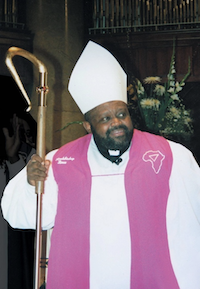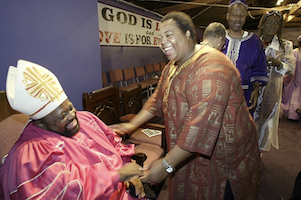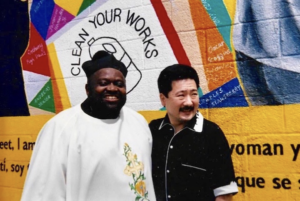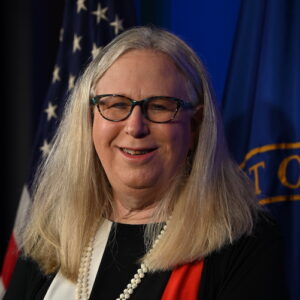 Social Media Influencers PrEP Campaign
Social Media Influencers PrEP Campaign
The Gay Men of Color Fellowship is based on a strong social media-based campaign informed by its members. Fellows are trained around biomedical prevention and provided with social media packages to startup their “biomedical prevention influencer” status. The campaigns seek to increase awareness around PrEP, PEP and TasP for men who have sex with other men. Fellows will also develop Facebook live events and to conceptualize social media posts around three thematic blocks: (1) Biomedical prevention basics, (2) Sex, desire, and pleasure, and (3) PrEP, PEP and Treatment adherence.
Adrian Parra
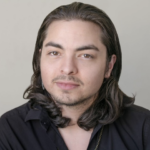 Adrian is a non-binary, Latinx, HIV+ individual who uses they, he, and she pronouns fluidly. They have been serving as the Executive Director at Youth OUTright WNC since January 2018. Adrian feels honored to build power with the LGBTQIA+ youth of WNC, cultivating a culture of consent, equity, and compassion. He prioritizes self-determination and facilitating intersectional and intergenerational dialogue within their youth organizing. She comes to social justice work from a background in fine art photography and printmaking and celebrates creative approaches to organizing for Justice. Outside of youth organizing, you might find them on a hiking trail chasing waterfalls with their pup DandyLion, or dancing in their living room to anything from clarinet to dubstep.
Adrian is a non-binary, Latinx, HIV+ individual who uses they, he, and she pronouns fluidly. They have been serving as the Executive Director at Youth OUTright WNC since January 2018. Adrian feels honored to build power with the LGBTQIA+ youth of WNC, cultivating a culture of consent, equity, and compassion. He prioritizes self-determination and facilitating intersectional and intergenerational dialogue within their youth organizing. She comes to social justice work from a background in fine art photography and printmaking and celebrates creative approaches to organizing for Justice. Outside of youth organizing, you might find them on a hiking trail chasing waterfalls with their pup DandyLion, or dancing in their living room to anything from clarinet to dubstep.
Alexi Díaz
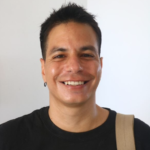 Born in Aibonito, PR, Alexi has a BA in Accounting from the University of Puerto Rico and a Law Degree from the Interamerican University of Puerto Rico. He was a member of Homoerotica, a group of LGBTQ+ writers. In 2012, he moved to Miami where he served as a volunteer for SAVE Dade, Latinos Salud, and the non-profit Prevention305. Since publicly disclosing his HIV status in 2017 and moving back to San Juan, he has been actively advocating for people living with HIV on the island. He has been a volunteer for the SEX Team since 2018. In 2019 became a founding member of CAMPoz, a collective of artists living with HIV that use their art to educate and reduce stigma. In 2020 he also co-founded Convihvir a social media/web-based platform to educate about HIV care, treatment, and prevention but mostly to eliminate stigma. In 2020 he also joined NMAC’s Latinx CAP. He was also featured in BuzzFeed and as part of the Latinx Institute at USCHA that same year.
Born in Aibonito, PR, Alexi has a BA in Accounting from the University of Puerto Rico and a Law Degree from the Interamerican University of Puerto Rico. He was a member of Homoerotica, a group of LGBTQ+ writers. In 2012, he moved to Miami where he served as a volunteer for SAVE Dade, Latinos Salud, and the non-profit Prevention305. Since publicly disclosing his HIV status in 2017 and moving back to San Juan, he has been actively advocating for people living with HIV on the island. He has been a volunteer for the SEX Team since 2018. In 2019 became a founding member of CAMPoz, a collective of artists living with HIV that use their art to educate and reduce stigma. In 2020 he also co-founded Convihvir a social media/web-based platform to educate about HIV care, treatment, and prevention but mostly to eliminate stigma. In 2020 he also joined NMAC’s Latinx CAP. He was also featured in BuzzFeed and as part of the Latinx Institute at USCHA that same year.
Andrés Acosta
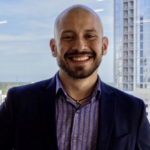 Andres Acosta is a Colombian-American first-generation immigrant. He is a veteran of the United States Navy having served on board the USS Essex while stationed in Sasebo, Japan. Upon his return to civilian life, Andres attended the University of Central Florida where he earned a bachelor’s in industrial/Organizational Psychology. He works at Heart Of Florida United Way as the program coordinator for the Central Florida HIV Planning Council, where he uses his skills to guide and train the council members in charge of overseeing the Ryan White System of Care for the Lake, Osceola, Orange, Seminole, and Brevard counties. He is the community relations manager for the Contigo Fund, the largest funder of LGBTQ issues in Central Florida. Andres is also the program manager for the Maven Leadership Collective, which consistently invests in talented queer and trans social impact leaders of color and allies to create more resilient communities. Andres served as the chair of the Community Advisory Board for the phase 3 HIV vaccine (HVTN 706 Mosaico) trials at Orlando Immunology Center. He also sits on the board of directors for Peer Support Space and is the chair of their advocacy committee.
Andres Acosta is a Colombian-American first-generation immigrant. He is a veteran of the United States Navy having served on board the USS Essex while stationed in Sasebo, Japan. Upon his return to civilian life, Andres attended the University of Central Florida where he earned a bachelor’s in industrial/Organizational Psychology. He works at Heart Of Florida United Way as the program coordinator for the Central Florida HIV Planning Council, where he uses his skills to guide and train the council members in charge of overseeing the Ryan White System of Care for the Lake, Osceola, Orange, Seminole, and Brevard counties. He is the community relations manager for the Contigo Fund, the largest funder of LGBTQ issues in Central Florida. Andres is also the program manager for the Maven Leadership Collective, which consistently invests in talented queer and trans social impact leaders of color and allies to create more resilient communities. Andres served as the chair of the Community Advisory Board for the phase 3 HIV vaccine (HVTN 706 Mosaico) trials at Orlando Immunology Center. He also sits on the board of directors for Peer Support Space and is the chair of their advocacy committee.
Bill Le
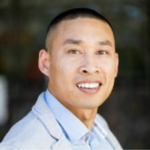 Bill is a PrEP Education Specialist for an NIH-funded research study, PrEP-Talk, at APLA Health. His research interests are working with YBMSM (Young Black Men who have sex with Men) and their friends to learn more about PrEP (pre-exposure prophylaxis). He graduated from the University of California, San Diego with a B.A. in Critical Gender Studies, in addition to completing the post-baccalaureate program in Psychology & Social Behavior at the University of California, Irvine. His passion for implementing evidence-based research interventions for gender and sexual minorities is increasing preventative health and education for the LGBTQIA+ community.
Bill is a PrEP Education Specialist for an NIH-funded research study, PrEP-Talk, at APLA Health. His research interests are working with YBMSM (Young Black Men who have sex with Men) and their friends to learn more about PrEP (pre-exposure prophylaxis). He graduated from the University of California, San Diego with a B.A. in Critical Gender Studies, in addition to completing the post-baccalaureate program in Psychology & Social Behavior at the University of California, Irvine. His passion for implementing evidence-based research interventions for gender and sexual minorities is increasing preventative health and education for the LGBTQIA+ community.
Bryan Ellicott
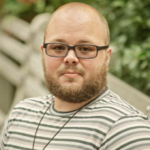 Bryan Ellicott is a Program Coordinator who works with all staff to both maintain and grow the Princess Janae Place. Bryan believes in the mission of Princess Janae Place because he knows what it is like to be a transgender person who believes that everything is set up for them to fail. The mission of Princess Janae Place is a deeply personal one. Bryan has come to Princess Janae Place, and helped take the process and organization to the next level. Every day, Bryan has found a new way for Princess Janae Place to grow and do things better for our clients and the TGNCNBI community especially those who are HIV+ or at risk of becoming HIV+.
Bryan Ellicott is a Program Coordinator who works with all staff to both maintain and grow the Princess Janae Place. Bryan believes in the mission of Princess Janae Place because he knows what it is like to be a transgender person who believes that everything is set up for them to fail. The mission of Princess Janae Place is a deeply personal one. Bryan has come to Princess Janae Place, and helped take the process and organization to the next level. Every day, Bryan has found a new way for Princess Janae Place to grow and do things better for our clients and the TGNCNBI community especially those who are HIV+ or at risk of becoming HIV+.
In 2017, Bryan Ellicott was honored by Gay City News Impact Awards for his courageous work in suing the New York City Parks Department for discrimination against Transgender New Yorkers who wish to use public pools. Bryan holds a Bachelor of Science in Political Science/ Public Administration from the City University of New York – College of Staten Island in the Class of 2012.
Christopher Walker
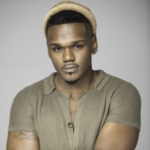 Christopher Walker is a project coordinator II at Education Training and Research (ETR )with six years of experience working in HIV/ STI prevention. Currently, he coordinates and provides logistical support for several projects on the HIV, Sexual & Reproductive Health services team at ETR. His career began in college while attending the University of Memphis. During his time there, he worked with several campus organizations assisting them in creating on-campus HIV/STI testing events and educational forums on cultural inclusivity. Shortly after graduation, he moved to Dallas, Texas, and took his learned skills to the non-profit world. He was a field supervisor for the CDC-funded National HIV Behavioral Surveillance and has experience working directly with marginalized communities. He has a Master’s in Public Health from the University of Texas School of Public Health. With a passion for advocacy, he aspires to fight disparities faced by individuals who lack access to equitable healthcare and education. In his spare time, he is a proud board member of the House of Rebirth, a transitional living space for transgender women of color, Momentum Health a non-profit organization focuses on creating community-based solutions for at-risk youth and cast member of three podcasts that tackle social justices issues through innovative ways, “BlaQberry View”, “What does it take to End it”, and “CommuniTEA”. Living by the motto “People helping people helping people” and fighting for what is right, he wants to make the world a better place for all.
Christopher Walker is a project coordinator II at Education Training and Research (ETR )with six years of experience working in HIV/ STI prevention. Currently, he coordinates and provides logistical support for several projects on the HIV, Sexual & Reproductive Health services team at ETR. His career began in college while attending the University of Memphis. During his time there, he worked with several campus organizations assisting them in creating on-campus HIV/STI testing events and educational forums on cultural inclusivity. Shortly after graduation, he moved to Dallas, Texas, and took his learned skills to the non-profit world. He was a field supervisor for the CDC-funded National HIV Behavioral Surveillance and has experience working directly with marginalized communities. He has a Master’s in Public Health from the University of Texas School of Public Health. With a passion for advocacy, he aspires to fight disparities faced by individuals who lack access to equitable healthcare and education. In his spare time, he is a proud board member of the House of Rebirth, a transitional living space for transgender women of color, Momentum Health a non-profit organization focuses on creating community-based solutions for at-risk youth and cast member of three podcasts that tackle social justices issues through innovative ways, “BlaQberry View”, “What does it take to End it”, and “CommuniTEA”. Living by the motto “People helping people helping people” and fighting for what is right, he wants to make the world a better place for all.
Christian Sandate Estrada
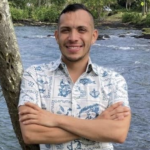 Christian Sandate Estrada (he/him) was born in Mexico and immigrated to Seattle, WA at the age of 12. Has worked for different non-profits/ASOs such as Entre Hermanos, GayCity Health, Hawaii Island HIV/AIDS Foundation (HIHAF), and Kumukahi Health & Wellness. He’s currently employed with Kumukahi Health & Wellness as a Prevention specialist & PrEP Navigator. Christian has a partner of 12 years and two wonderful but crazy dogs, named Dex and Lulu. He is a DACA recipient and has been so for the past 10 years. In his free time, Christian loves to spend time at the beach, hop on a plane to a different island, and hit the road in his truck.
Christian Sandate Estrada (he/him) was born in Mexico and immigrated to Seattle, WA at the age of 12. Has worked for different non-profits/ASOs such as Entre Hermanos, GayCity Health, Hawaii Island HIV/AIDS Foundation (HIHAF), and Kumukahi Health & Wellness. He’s currently employed with Kumukahi Health & Wellness as a Prevention specialist & PrEP Navigator. Christian has a partner of 12 years and two wonderful but crazy dogs, named Dex and Lulu. He is a DACA recipient and has been so for the past 10 years. In his free time, Christian loves to spend time at the beach, hop on a plane to a different island, and hit the road in his truck.
Dwight Venson
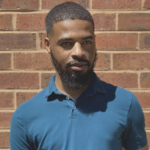 Dwight Venson proudly serves as the Program Coordinator of Outreach, Linkage, and Engagement for the Gay Men’s Health Collaborative in Fairfax, VA. Originally from Cleveland, Ohio, Dwight received his bachelor’s in political science from John Carroll University. He is most passionate about issues impacting black queer communities and providing educational training around sexual liberation for black gay men. In his spare time, he enjoys the dramatic arts, creative writing, and developing (social) media content for his upcoming podcast brand “The Cleveland Hoochies.”
Dwight Venson proudly serves as the Program Coordinator of Outreach, Linkage, and Engagement for the Gay Men’s Health Collaborative in Fairfax, VA. Originally from Cleveland, Ohio, Dwight received his bachelor’s in political science from John Carroll University. He is most passionate about issues impacting black queer communities and providing educational training around sexual liberation for black gay men. In his spare time, he enjoys the dramatic arts, creative writing, and developing (social) media content for his upcoming podcast brand “The Cleveland Hoochies.”
Ernest Brown
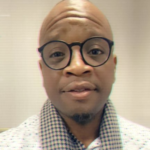 Ernest Brown has over 8 years working in the field of Public Health. Ernest also has extensive experience with working with young MSM’s of color and is currently serving on the SC HIV Planning Council as an active voting member. Ernest is also a member of the Positive Advocacy Committee working with individuals living with HIV. Ernest also has a vast social network which he uses to educate and inform people across all social media platforms about Safer Sex Practices and PrEP. Ernest continues to work to end the HIV Epidemic and is a strong advocate for U=U focusing on treatment as prevention, which he provides free HIV STI Testing services for young men of Color in Columbia S.C.
Ernest Brown has over 8 years working in the field of Public Health. Ernest also has extensive experience with working with young MSM’s of color and is currently serving on the SC HIV Planning Council as an active voting member. Ernest is also a member of the Positive Advocacy Committee working with individuals living with HIV. Ernest also has a vast social network which he uses to educate and inform people across all social media platforms about Safer Sex Practices and PrEP. Ernest continues to work to end the HIV Epidemic and is a strong advocate for U=U focusing on treatment as prevention, which he provides free HIV STI Testing services for young men of Color in Columbia S.C.
Ervin Gainer
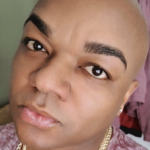 Ervin Gainer was born and raised in Indianapolis, IN where he still resides. He attended Ball State University where he earned a Bachelor of Science degree. After finding out an HIV diagnosis in December of 2011, Gainer wanted to turn a negative into a positive by getting involved in STI/HIV work. He got his foot in the door at Bell Flower Clinic in 2013 as an Outreach Clinic Technician. Gainer later became a Disease Intervention Specialist (DIS) I in 2015 and was promoted to DIS II in 2018. Ervin parted ways with Bell Flower Clinic in January 2020 and joined Ryan White Services Department at Community Health Network in March where he currently works as an HIV testing/Outreach/Linkage to Care Specialist. A few fun facts about Ervin is that he loves musical theatre, has been to Europe, is a Disney Nerd, and loves horror movies. Oh, and a good cocktail!
Ervin Gainer was born and raised in Indianapolis, IN where he still resides. He attended Ball State University where he earned a Bachelor of Science degree. After finding out an HIV diagnosis in December of 2011, Gainer wanted to turn a negative into a positive by getting involved in STI/HIV work. He got his foot in the door at Bell Flower Clinic in 2013 as an Outreach Clinic Technician. Gainer later became a Disease Intervention Specialist (DIS) I in 2015 and was promoted to DIS II in 2018. Ervin parted ways with Bell Flower Clinic in January 2020 and joined Ryan White Services Department at Community Health Network in March where he currently works as an HIV testing/Outreach/Linkage to Care Specialist. A few fun facts about Ervin is that he loves musical theatre, has been to Europe, is a Disney Nerd, and loves horror movies. Oh, and a good cocktail!
J. Donté Prayer
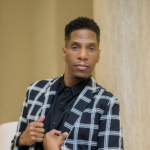 J. Donté Prayer is the NC AIDS Action Network’s Health Access Coordinator and the founder of R.O.L.E Models. He is a native of Greenville, North Carolina but currently resides in Charlotte. Donté is a proud product of Elizabeth City State University. Prior to joining the NCAAN team, Donté was a Prevention Coordinator for a local AIDS service organization, focusing on community-based outreach and engagement, mobilization, health disparity education, counseling and assessment, sexual wellness, HIV and Hepatitis linkage to care, and other referral services including PrEP navigation. Donte’ served as the Chair of the Collaborative Council for Statusboiz and Statusgurlz, a University of North Carolina at Charlotte research study funded by the U.S. Centers for Disease Control and Prevention’s Minority AIDS Research Initiative. This $1.1 million project focused on HIV prevention for young African American gay/bisexual men and transgender women through culturally-based social networking. His involvement ensured the success of the project. Donté continues to serve on community councils, boards and planning bodies to eradicate the HIV disparity including the Black Treatment Advocates Network and the Ryan White Planning Body.
J. Donté Prayer is the NC AIDS Action Network’s Health Access Coordinator and the founder of R.O.L.E Models. He is a native of Greenville, North Carolina but currently resides in Charlotte. Donté is a proud product of Elizabeth City State University. Prior to joining the NCAAN team, Donté was a Prevention Coordinator for a local AIDS service organization, focusing on community-based outreach and engagement, mobilization, health disparity education, counseling and assessment, sexual wellness, HIV and Hepatitis linkage to care, and other referral services including PrEP navigation. Donte’ served as the Chair of the Collaborative Council for Statusboiz and Statusgurlz, a University of North Carolina at Charlotte research study funded by the U.S. Centers for Disease Control and Prevention’s Minority AIDS Research Initiative. This $1.1 million project focused on HIV prevention for young African American gay/bisexual men and transgender women through culturally-based social networking. His involvement ensured the success of the project. Donté continues to serve on community councils, boards and planning bodies to eradicate the HIV disparity including the Black Treatment Advocates Network and the Ryan White Planning Body.
James Lewis
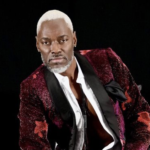 James Lewis, a native of New Orleans LA has worked in public health for 15 years with a community-based organization like Women with a Vision Inc., Tulane’s School of Public Health, and Brotherhood Inc. offering PrEP navigation and linkage to care services. He currently works for Tulane University in the School of Medicine as the Health Model’s Coordinator and is currently a board member of the New Orleans LGBTQ community center. James is also a male lead entertainer (Siaz FoXx) and competitor in the pageant community, he uses this platform to advocate for LGBTQ issues along with hosting a monthly Facebook live show called “Sip, Chat and Chew with The FoXx” in partnership with local agencies where the topics range from health inequalities, social challenges in his community, to being Sex and body positive. His message is simply, “the battle to end the epidemic will take soldiers that are willing to fight and sacrifice until the war is won.”
James Lewis, a native of New Orleans LA has worked in public health for 15 years with a community-based organization like Women with a Vision Inc., Tulane’s School of Public Health, and Brotherhood Inc. offering PrEP navigation and linkage to care services. He currently works for Tulane University in the School of Medicine as the Health Model’s Coordinator and is currently a board member of the New Orleans LGBTQ community center. James is also a male lead entertainer (Siaz FoXx) and competitor in the pageant community, he uses this platform to advocate for LGBTQ issues along with hosting a monthly Facebook live show called “Sip, Chat and Chew with The FoXx” in partnership with local agencies where the topics range from health inequalities, social challenges in his community, to being Sex and body positive. His message is simply, “the battle to end the epidemic will take soldiers that are willing to fight and sacrifice until the war is won.”
Manny Muro
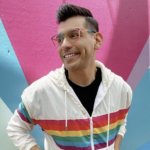 Manny Muro is a Proud, Queer, Latinx man who was born and raised in Southern California. As a lifelong resident, Manny has a passion for serving the community that shaped him throughout his life. Manny is currently the Outreach and Education Coordinator for Radiant Health Centers which is Orange County’s largest provider of LGBTQ+ health and social services. Manny is working to eliminate stigma and overcome health disparities impacting the LGBTQ+ community. Manny also serves as the Chairman of the OC PrEP Coalition whose mission is to decrease HIV transmission rates by educating, empowering, and connecting individuals to biomedical prevention tools. Manny also held the title of Mr. Gay Orange County and is currently the Vice President of Orange County LGBT Pride where he works to strengthen the identity of the Lesbian, Gay, Bisexual, and Transgender Community within Orange County.
Manny Muro is a Proud, Queer, Latinx man who was born and raised in Southern California. As a lifelong resident, Manny has a passion for serving the community that shaped him throughout his life. Manny is currently the Outreach and Education Coordinator for Radiant Health Centers which is Orange County’s largest provider of LGBTQ+ health and social services. Manny is working to eliminate stigma and overcome health disparities impacting the LGBTQ+ community. Manny also serves as the Chairman of the OC PrEP Coalition whose mission is to decrease HIV transmission rates by educating, empowering, and connecting individuals to biomedical prevention tools. Manny also held the title of Mr. Gay Orange County and is currently the Vice President of Orange County LGBT Pride where he works to strengthen the identity of the Lesbian, Gay, Bisexual, and Transgender Community within Orange County.
Omar Martínez González
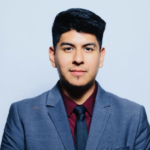 Omar Martínez González is the LGBTQ+ Program Coordinator at the Multicultural AIDS Coalition in Boston, MA. In this role, he is working to build community and increase HIV/AIDS prevention and treatment services for LGBTQ+ people of color. He has also coordinated college access programs in Chicago and Washington, D.C., worked in and lobbied the U.S. House of Representatives, and did family immigration casework for a private immigration firm. As a gay, Latinx, DACAmented individual, he is passionate about bridging the access and success gap for underserved communities, advocating for social justice, and dismantling oppressive systems. Omar is a graduate of the Illinois Institute of Technology where he obtained his Bachelor’s and Master’s in Biology.
Omar Martínez González is the LGBTQ+ Program Coordinator at the Multicultural AIDS Coalition in Boston, MA. In this role, he is working to build community and increase HIV/AIDS prevention and treatment services for LGBTQ+ people of color. He has also coordinated college access programs in Chicago and Washington, D.C., worked in and lobbied the U.S. House of Representatives, and did family immigration casework for a private immigration firm. As a gay, Latinx, DACAmented individual, he is passionate about bridging the access and success gap for underserved communities, advocating for social justice, and dismantling oppressive systems. Omar is a graduate of the Illinois Institute of Technology where he obtained his Bachelor’s and Master’s in Biology.
Richard Hutchinson Jr.
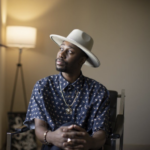 Richard Hutchinson Jr. is a Black Queer Liberationist, A public health professional, community activist, creative and social entrepreneur from Trenton, NJ. He received his Bachelor’s Degree in Journalism & Sociology from Rutgers University in 2012. Richard has been living with HIV since 2015, when he was 25 years old. Hutchinson is the Co-Founder and Executive Director of the Atlanta-based nonprofit social movement organization, He Is Valuable, Inc. (#HeIsValuable). The mission of He Is Valuable, Inc. is to identify, reinforce and celebrate the value of Black Queer Men and their communities as a way to address HIV and other health disparities/social justice issues that impact the lives of the Black Queer community. Richard has been working in the field of public health and HIV for 6 years. Since moving to Atlanta, Hutchinson has demonstrated a commitment to addressing HIV/AIDS and social justice issues regarding the Black LGBT community through community organizing amongst Black Queer and LGBT young people, advocacy for PLWHA, social marketing, and effective community outreach/engagement. Locally and nationally, he works as a public health consultant and facilitator/trainer with organizations like NMAC, Kaiser Family Foundation, and Morehouse School of Medicine. Richard’s transformative leadership and passions are centered on building collective community power, emotional intelligence, healing justice, growth mindset, and creative radical visibility.
Richard Hutchinson Jr. is a Black Queer Liberationist, A public health professional, community activist, creative and social entrepreneur from Trenton, NJ. He received his Bachelor’s Degree in Journalism & Sociology from Rutgers University in 2012. Richard has been living with HIV since 2015, when he was 25 years old. Hutchinson is the Co-Founder and Executive Director of the Atlanta-based nonprofit social movement organization, He Is Valuable, Inc. (#HeIsValuable). The mission of He Is Valuable, Inc. is to identify, reinforce and celebrate the value of Black Queer Men and their communities as a way to address HIV and other health disparities/social justice issues that impact the lives of the Black Queer community. Richard has been working in the field of public health and HIV for 6 years. Since moving to Atlanta, Hutchinson has demonstrated a commitment to addressing HIV/AIDS and social justice issues regarding the Black LGBT community through community organizing amongst Black Queer and LGBT young people, advocacy for PLWHA, social marketing, and effective community outreach/engagement. Locally and nationally, he works as a public health consultant and facilitator/trainer with organizations like NMAC, Kaiser Family Foundation, and Morehouse School of Medicine. Richard’s transformative leadership and passions are centered on building collective community power, emotional intelligence, healing justice, growth mindset, and creative radical visibility.
Tarik Daniels
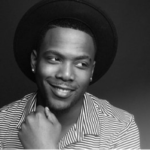 Tarik Daniels is an AfroQueer writer, performer, certified mental health peer specialist & HIV awareness activist. Tarik is the Founder and Executive Director of WhatsintheMirror?, a social movement that provides mental health awareness and suicide prevention through art and advocacy to communities of color. He is serving his second term as a City Commissioner for Austin’s LGBTQ Quality Of Life Advisory Board and Vice-Chair of the City of Austin’s HIV Planning Council. Tarik has written, directed, and produced several plays and released a novel, No Bonds So Strong in 2018, and hosts a black queer lifestyle podcast, What Works For Us. As a public speaker and storyteller, he uses his narrative as a person living with HIV to bring awareness to HIV and mental health stigma. He is the winner of the 2019 Austin Under 40 Awards in Arts & Entertainment, 2020 SXSW Community Service Award Honoree, & 2021 BEQ LGBTQ 40 Under 40.
Tarik Daniels is an AfroQueer writer, performer, certified mental health peer specialist & HIV awareness activist. Tarik is the Founder and Executive Director of WhatsintheMirror?, a social movement that provides mental health awareness and suicide prevention through art and advocacy to communities of color. He is serving his second term as a City Commissioner for Austin’s LGBTQ Quality Of Life Advisory Board and Vice-Chair of the City of Austin’s HIV Planning Council. Tarik has written, directed, and produced several plays and released a novel, No Bonds So Strong in 2018, and hosts a black queer lifestyle podcast, What Works For Us. As a public speaker and storyteller, he uses his narrative as a person living with HIV to bring awareness to HIV and mental health stigma. He is the winner of the 2019 Austin Under 40 Awards in Arts & Entertainment, 2020 SXSW Community Service Award Honoree, & 2021 BEQ LGBTQ 40 Under 40.
Timothy S. Jackson
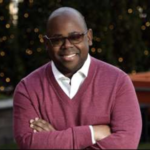 Timothy S. Jackson (he/him/his) works as the Director of Government Relations for AIDS Foundation Chicago (AFC). His work at AFC includes developing and managing the organization’s government relations activities specializing in HIV-related state legislative matters regarding appropriations, health care reform, HIV decriminalization, LGBTQ+ issues, housing, and addressing health disparities through a racial equity lens.
Timothy S. Jackson (he/him/his) works as the Director of Government Relations for AIDS Foundation Chicago (AFC). His work at AFC includes developing and managing the organization’s government relations activities specializing in HIV-related state legislative matters regarding appropriations, health care reform, HIV decriminalization, LGBTQ+ issues, housing, and addressing health disparities through a racial equity lens.
Prior to joining the Policy & Advocacy team at AFC, Timothy served as a Congressional legislative and constituent services staffer for nine years. During this time, he also served as Board President for Thrive Alabama—an AIDS Service Organization and Federally Qualified Health Center providing medical care and support service to people living with and vulnerable to HIV.
As a Black gay man living with HIV for nearly twelve years, Timothy’s career is centered on advocating on behalf of people living with HIV, amplifying the voices of those most impacted and addressing the effect HIV has on the communities where his identities intersect. Timothy is a national speaker and facilitator on the importance of self-empowerment through the creation of networks of people living with HIV.
Timothy is a member of the Chicago Urban League’s MetroBoard, the National Gay Black Men’s Advocacy Coalition, and co-chair of the Illinois Harm Reduction and Recovery Coalition. He was also selected as a 2020 Fellow in Families USA Health Equity Academy in System Transformation. Finally, Timothy is also the founder of The Promises Project, an online clearinghouse of HIV-related resources and media content for advocates and allies.
A native of Jackson, Mississippi by way of Huntsville, Alabama, Timothy received his BA in Political Science and History from Mississippi State University and holds an Associate of Arts degree in Liberal Arts from Holmes Community College.
Tommy Young-Dennis
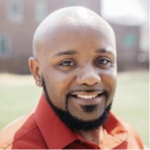 Tommy Young-Dennis, born in Omaha, Nebraska, is a gay Black man, LGBTQ+ advocate, HIV activist, and educator. After being diagnosed as HIV+ in 2010, Young-Dennis turned his devastation into action. Within three months of his diagnosis, he founded an HIV+ support group for young adults, began volunteering at Nebraska AIDS Project, and dedicated his time to supporting and educating others living with the disease. In 2017, Young-Dennis joined the Nebraska AIDS Project (NAP) full-time as their Prevention and Outreach Specialist, where he does onsite testing, Linkage to Care, and focuses on providing resources and education to the Black, Gay, and same gender- loving men. (BGBM) community), a population disproportionately affected by HIV. Tommy was promoted to Outreach Coordinator in June 2020. Additionally, Tommy serves as one of the co-chairs of the National LGBT Juvenile Justice HIV sub-group which focuses on De-criminalizing HIV laws and those who are impacted by them.
Tommy Young-Dennis, born in Omaha, Nebraska, is a gay Black man, LGBTQ+ advocate, HIV activist, and educator. After being diagnosed as HIV+ in 2010, Young-Dennis turned his devastation into action. Within three months of his diagnosis, he founded an HIV+ support group for young adults, began volunteering at Nebraska AIDS Project, and dedicated his time to supporting and educating others living with the disease. In 2017, Young-Dennis joined the Nebraska AIDS Project (NAP) full-time as their Prevention and Outreach Specialist, where he does onsite testing, Linkage to Care, and focuses on providing resources and education to the Black, Gay, and same gender- loving men. (BGBM) community), a population disproportionately affected by HIV. Tommy was promoted to Outreach Coordinator in June 2020. Additionally, Tommy serves as one of the co-chairs of the National LGBT Juvenile Justice HIV sub-group which focuses on De-criminalizing HIV laws and those who are impacted by them.
In 2018 Tommy was awarded the Young Black Influential Award for his Advocacy. In 2021 he was also the recipient of the Kuwasi Balagoon award for his work related to HIV education and Outreach from Black and Pink the nation’s largest LGBTQIA+ Prison abolitionist organization.
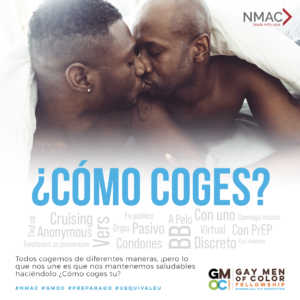
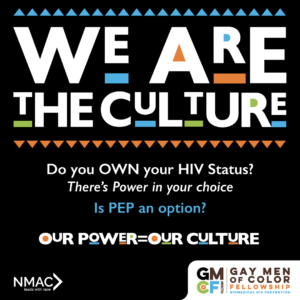
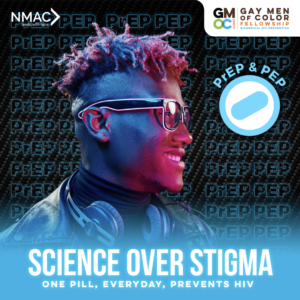
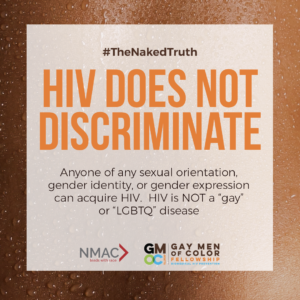

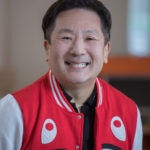

 Last year White America woke to the over policing of Black people through the killing of George Floyd and too many others to name. What happens when something is unfair to People of Color but needed in White communities? This is the paradigm shift that America is working to answer. In our fight to end HIV, PrEP users are 75% White, yet the majority of people living with HIV and the majority of new cases of HIV are among people of color. PrEP is reaching Gay White men, but not Gay Black men. What does that mean?
Last year White America woke to the over policing of Black people through the killing of George Floyd and too many others to name. What happens when something is unfair to People of Color but needed in White communities? This is the paradigm shift that America is working to answer. In our fight to end HIV, PrEP users are 75% White, yet the majority of people living with HIV and the majority of new cases of HIV are among people of color. PrEP is reaching Gay White men, but not Gay Black men. What does that mean? To my White friends, here is how I navigate these challenges. As an old fem Asian cisgender Gay man and the Executive Director of the agency formerly known as the National Minority AIDS Council, I am professionally aware of the privileges and discrimination that goes with how I present myself to the world. Part of my job is to hold-up communities that are often overlooked or undervalued. Most of my job is to listen and learn from those communities.
To my White friends, here is how I navigate these challenges. As an old fem Asian cisgender Gay man and the Executive Director of the agency formerly known as the National Minority AIDS Council, I am professionally aware of the privileges and discrimination that goes with how I present myself to the world. Part of my job is to hold-up communities that are often overlooked or undervalued. Most of my job is to listen and learn from those communities. Privilege is taking all the oxygen out of the room. I purposely use my privilege in rooms full of White people. I want them to understand that they are not the only important voices. It took me a long time to get comfortable, some would say too comfortable, with this privilege. As an Asian man, it was not something that came naturally. In the world of HIV, it is a very important skill. It is difficult if not impossible for many of you to understand what it means to present as White, yet it is something that every person of color intimately knows. Our value depends on how we present ourselves in the world. The closer we show up as white heterosexual men the better. For most of us that is impossible, yet that is the gold standard for power and wealth in America.
Privilege is taking all the oxygen out of the room. I purposely use my privilege in rooms full of White people. I want them to understand that they are not the only important voices. It took me a long time to get comfortable, some would say too comfortable, with this privilege. As an Asian man, it was not something that came naturally. In the world of HIV, it is a very important skill. It is difficult if not impossible for many of you to understand what it means to present as White, yet it is something that every person of color intimately knows. Our value depends on how we present ourselves in the world. The closer we show up as white heterosexual men the better. For most of us that is impossible, yet that is the gold standard for power and wealth in America. COVID, Black Lives Matter, the Jan. 6 insurrection, and climate change have forced a reckoning. We can probably end the HIV epidemic in the White community by 2030, but if we stay on the same course, I have real doubts about ending HIV in communities of color. This is my pledge to the HIV movement: what is fair cannot be based on White privilege. Our work must embrace the challenge of what is fair to communities who have lived under generations of discrimination and oppression. This is bigger than change; it is a shift in the paradigm. Ending the HIV epidemic in America starts by re-looking at what is fair.
COVID, Black Lives Matter, the Jan. 6 insurrection, and climate change have forced a reckoning. We can probably end the HIV epidemic in the White community by 2030, but if we stay on the same course, I have real doubts about ending HIV in communities of color. This is my pledge to the HIV movement: what is fair cannot be based on White privilege. Our work must embrace the challenge of what is fair to communities who have lived under generations of discrimination and oppression. This is bigger than change; it is a shift in the paradigm. Ending the HIV epidemic in America starts by re-looking at what is fair.
